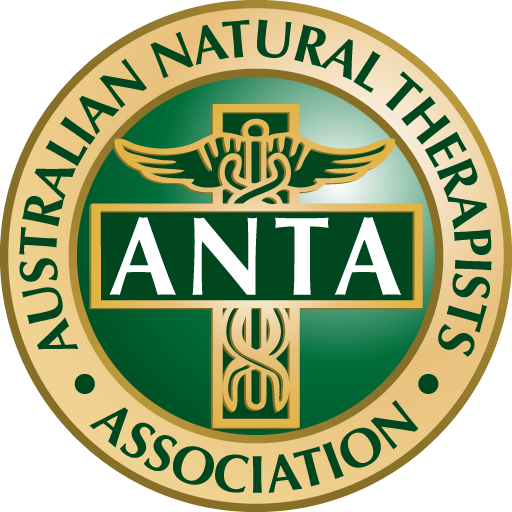What’s with all the different diets?
There are SO many different diets out there, so which one is right for you?! Which one is going to help you feel like your best self? Which diets are genuinely beneficial and backed up by research and which diets are simply fads? Below I will outline some of the main diet trends dominating the health and wellness space at the moment, with some of their Pro’s and Con’s. It is by no means an extensive list. But this summary may help you choose what the best diet is for you in particular, because everyone is different. No one diet suits all. But just the heads up, the last diet is by far my favourite ;)
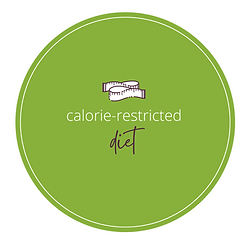
Calorie-restricted diet
Summary: Targeted for those wishing to lose weight by consuming less calories than what they burn. In other words, there are LESS calories IN, MORE calories OUT.
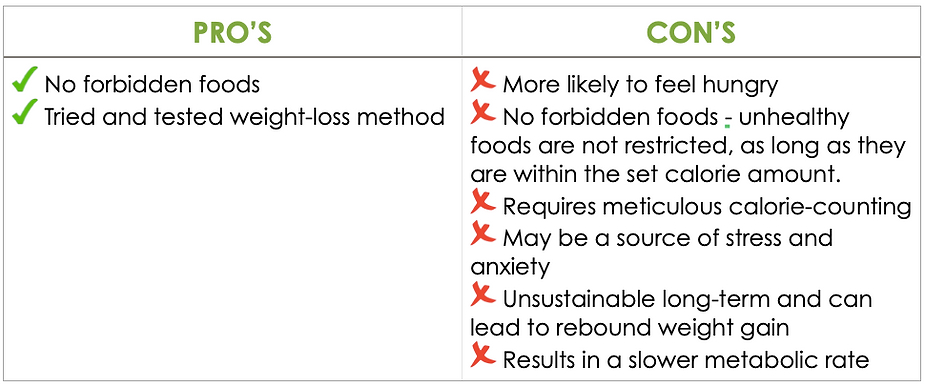
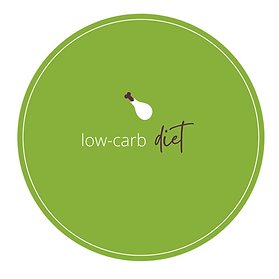
Low-carb diet
Summary: For those wishing to lose weight and balance their blood sugar levels. Most carbs are replaced with good quality proteins and fats that help you feel fuller for longer.
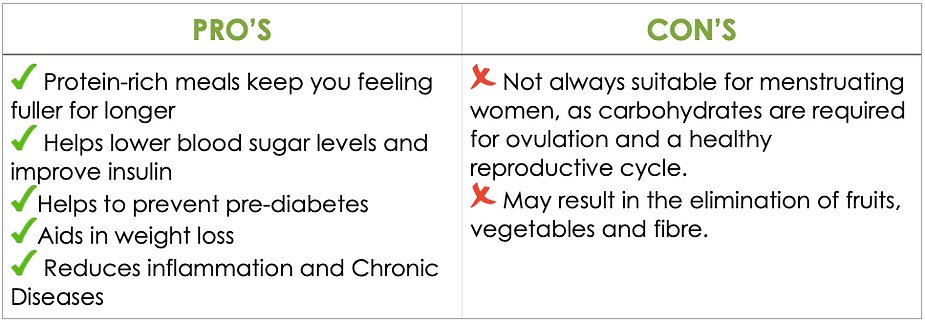
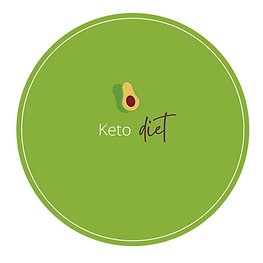
Keto-diet
Summary: This diet strictly limits carbohydrates and encourages the consumption of more fats and moderate amounts of protein. This results in a “ketogenic state,” where your body is using ketones for fuel rather than glucose. It is for those who wish to burn body fat for energy and aids in weight loss.
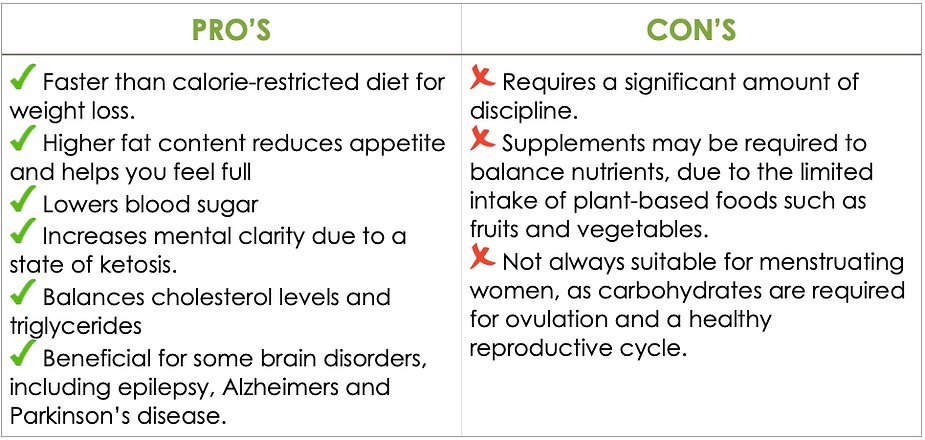
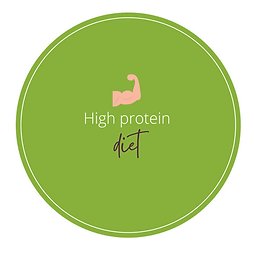
High-protein diet
Summary: This diet supports weight loss and helps you feel fuller for longer. It prevents loss of muscle mass and is great for athletes who are looking to build muscle. This diet incorporates animal and plant based protein sources with some healthy carbs and fats.

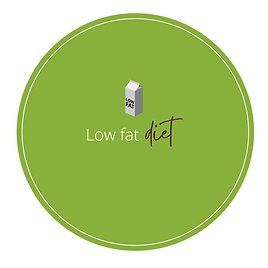
Low-fat diet
Summary: Limits fat consumption to less than 25% of your total energy consumption. This diet prioritises whole grains, fruits, vegetables, poultry, fish, lean meat and low fat dairy products.
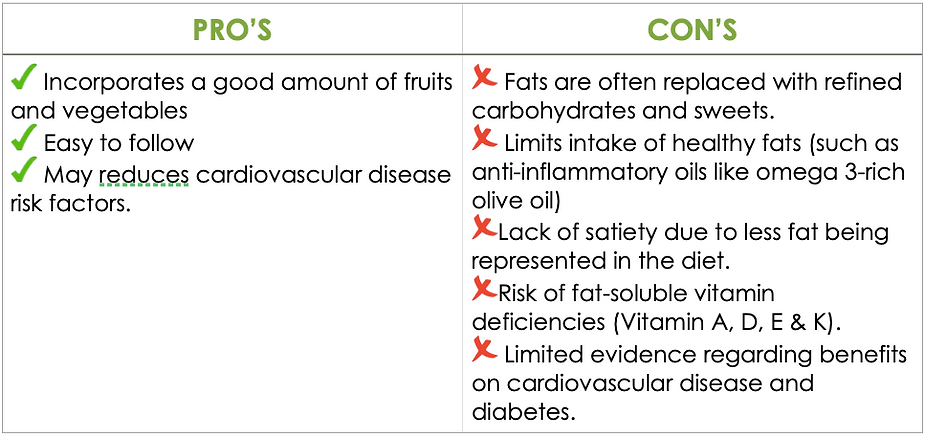
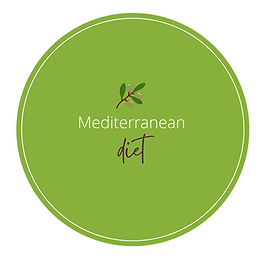
Mediterranean diet
Summary: focuses on plant-based foods. Includes healthy carbs from whole grains, fruits, vegetables and legumes. Olive oil is one of the primary sources of fat. Added sugars, refined grains and red meats are limited.

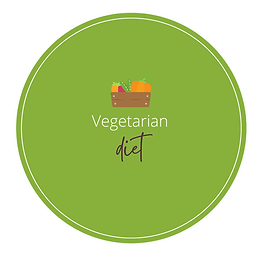
Vegetarian diet
Summary: This diet eliminates animal foods but includes products provided by animals such as dairy and eggs. This diet are often motivated by animal welfare and environmental concerns.
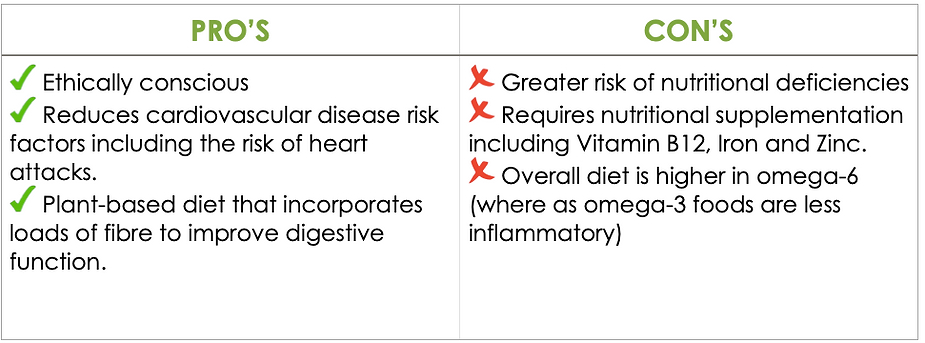
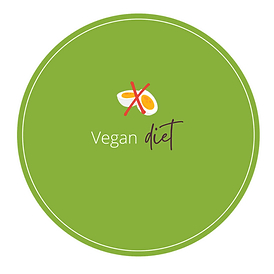
Vegan diet
Summary: This diet eliminates ALL animal foods, including products sourced from animals such as dairy, eggs, gelatine and sometimes honey. Like the Vegetarian diet, Vegan diets are often motivated by animal welfare and environmental concerns.
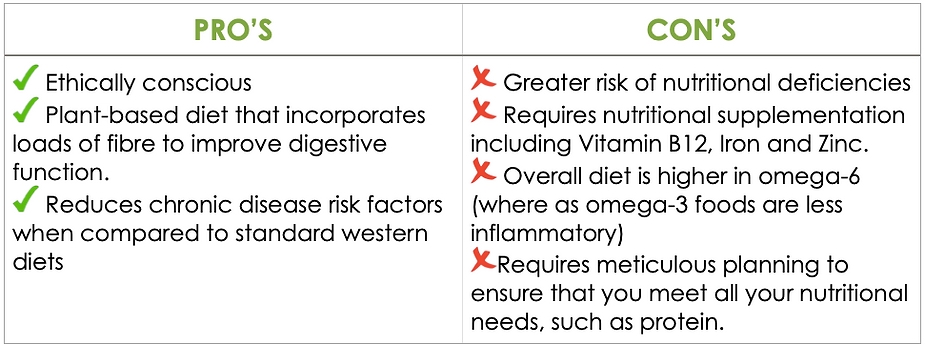
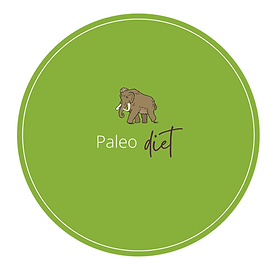
Paleo diet
Summary: This diet advises consuming lean meat, fish, vegetables, fruits, and nuts and avoiding intake of grains, dairy products, processed foods, and added sugar and salt. It is inspired by a historical understanding of what humans would’ve eaten prior to 10,000 years ago when foods such as dairy products, legumes and grains became more common.

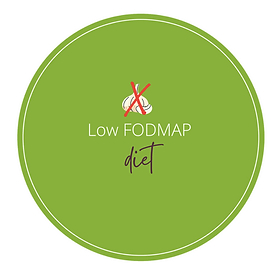
Low FODMAP diet
Summary: The Low FODMAP diet excludes a group of foods containing “FODMAP’s.” FODMAPs are a group of sugars that are not completely digested or absorbed in our intestines. It is an acronym that stands for “Fermentable Oligosaccharides, Disaccharides, Monosaccharides and Polyols.” These types of sugars can be aggravating in some individuals with IBS or SIBO. It is commonly prescribed by a nutritionist or dietician if you have been diagnosed with one of these conditions.

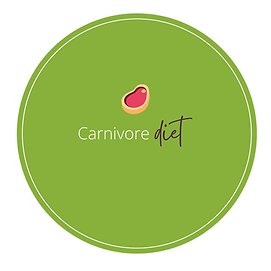
Carnivore Diet
Summary: The Carnivore diet is simple, you ONLY eat animal foods and products! It is probably the latest trend out of all these diets at the moment.
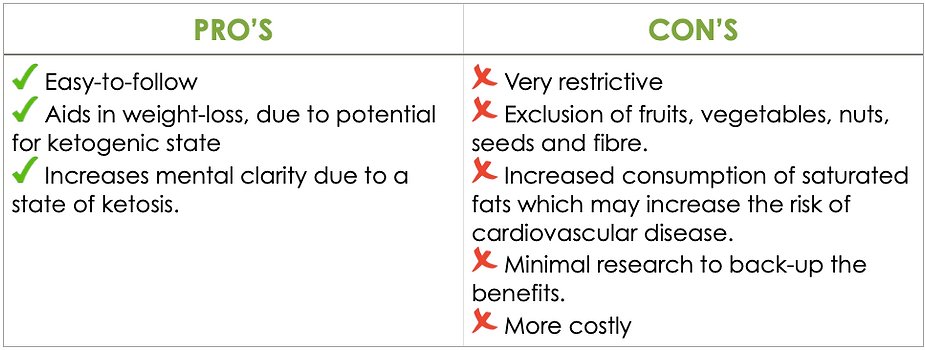
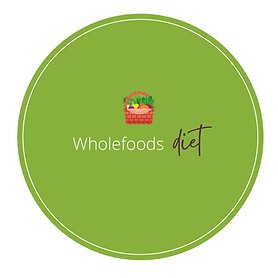
Wholefoods Diet
Summary: This diet emphasises eating foods that are as close as possible to their natural state. For example, potatoes are permissible but potato chips are not. Chicken breast is permissible but not chicken nuggets. These are foods that are minimally processed, do not have added sugars, flavours, colours and other additives. Because they are minimally processed, these foods are higher in vitamins, minerals and fibre. This is by far my favourite diet!

If you want professional help to decide what diet is best for you and your family, feel free to book a consultation with me! Click here to contact me.
References available upon request






